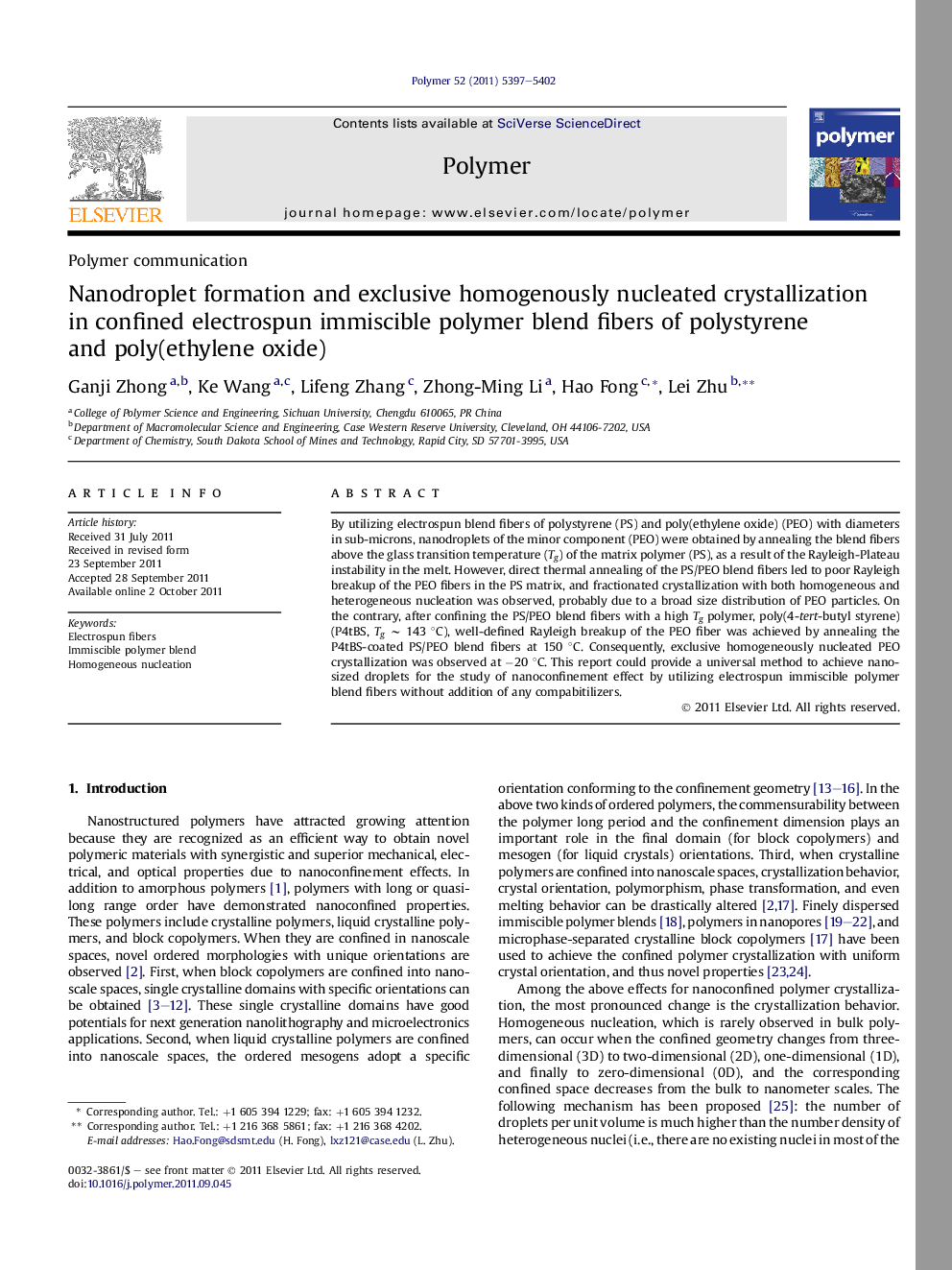| Article ID | Journal | Published Year | Pages | File Type |
|---|---|---|---|---|
| 5183851 | Polymer | 2011 | 6 Pages |
By utilizing electrospun blend fibers of polystyrene (PS) and poly(ethylene oxide) (PEO) with diameters in sub-microns, nanodroplets of the minor component (PEO) were obtained by annealing the blend fibers above the glass transition temperature (Tg) of the matrix polymer (PS), as a result of the Rayleigh-Plateau instability in the melt. However, direct thermal annealing of the PS/PEO blend fibers led to poor Rayleigh breakup of the PEO fibers in the PS matrix, and fractionated crystallization with both homogeneous and heterogeneous nucleation was observed, probably due to a broad size distribution of PEO particles. On the contrary, after confining the PS/PEO blend fibers with a high Tg polymer, poly(4-tert-butyl styrene) (P4tBS, Tg â¼Â 143 °C), well-defined Rayleigh breakup of the PEO fiber was achieved by annealing the P4tBS-coated PS/PEO blend fibers at 150 °C. Consequently, exclusive homogeneously nucleated PEO crystallization was observed at â20 °C. This report could provide a universal method to achieve nano-sized droplets for the study of nanoconfinement effect by utilizing electrospun immiscible polymer blend fibers without addition of any compabitilizers.
Graphical abstractDownload full-size image
